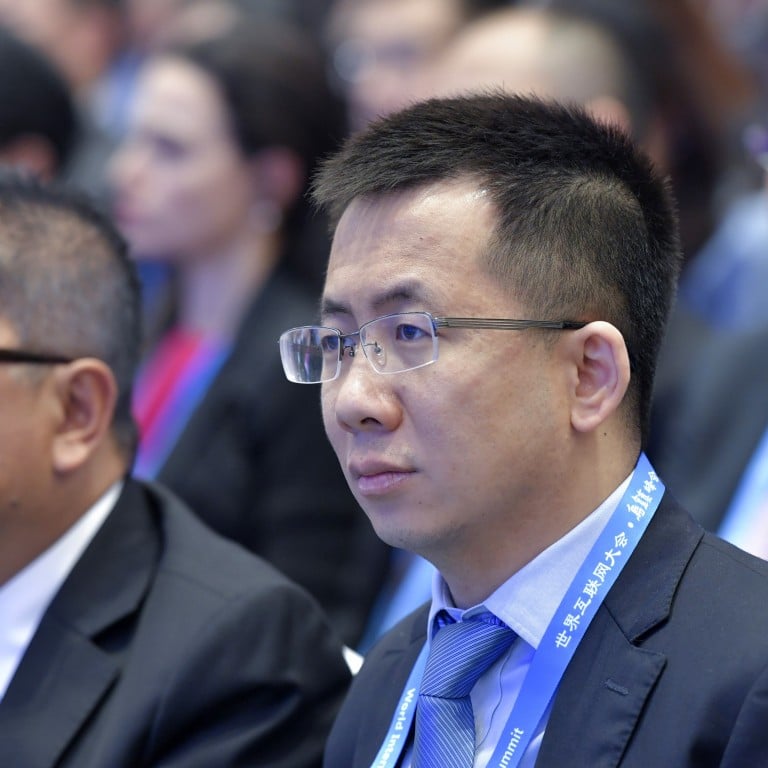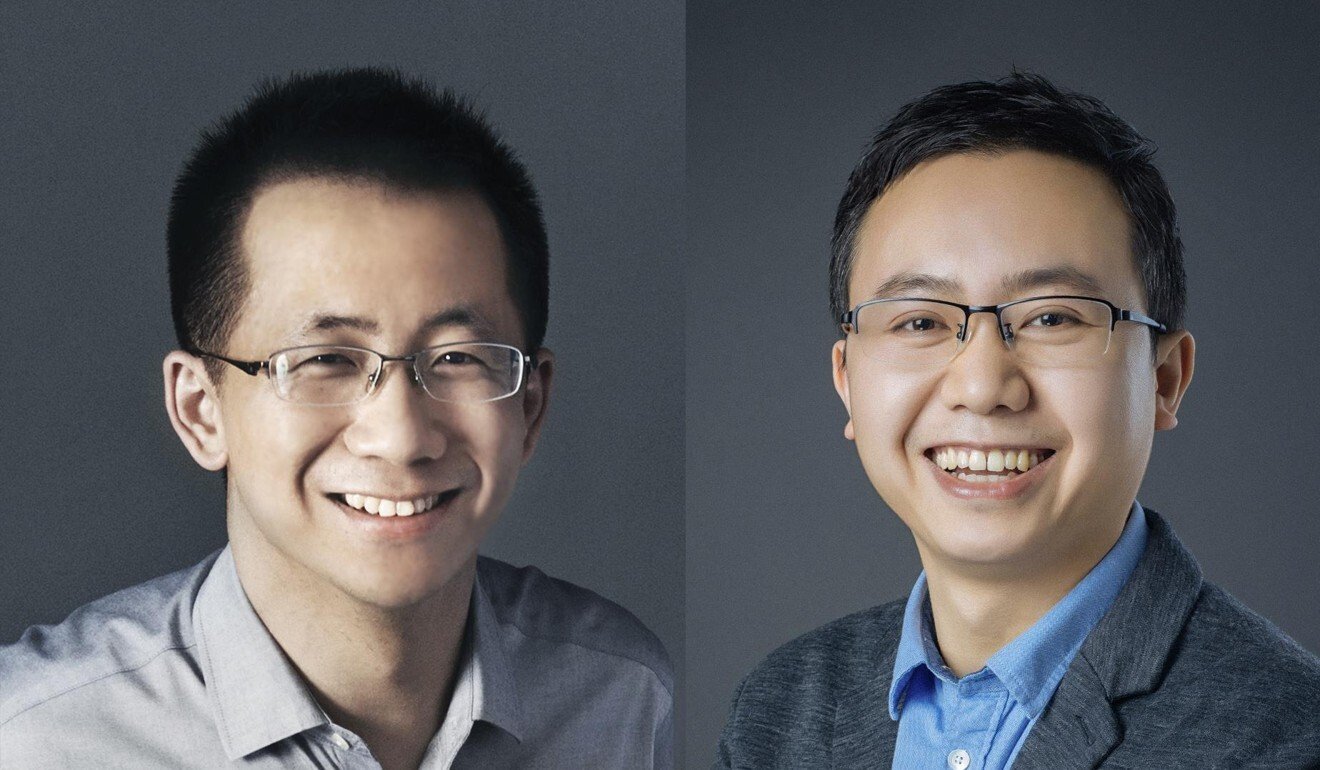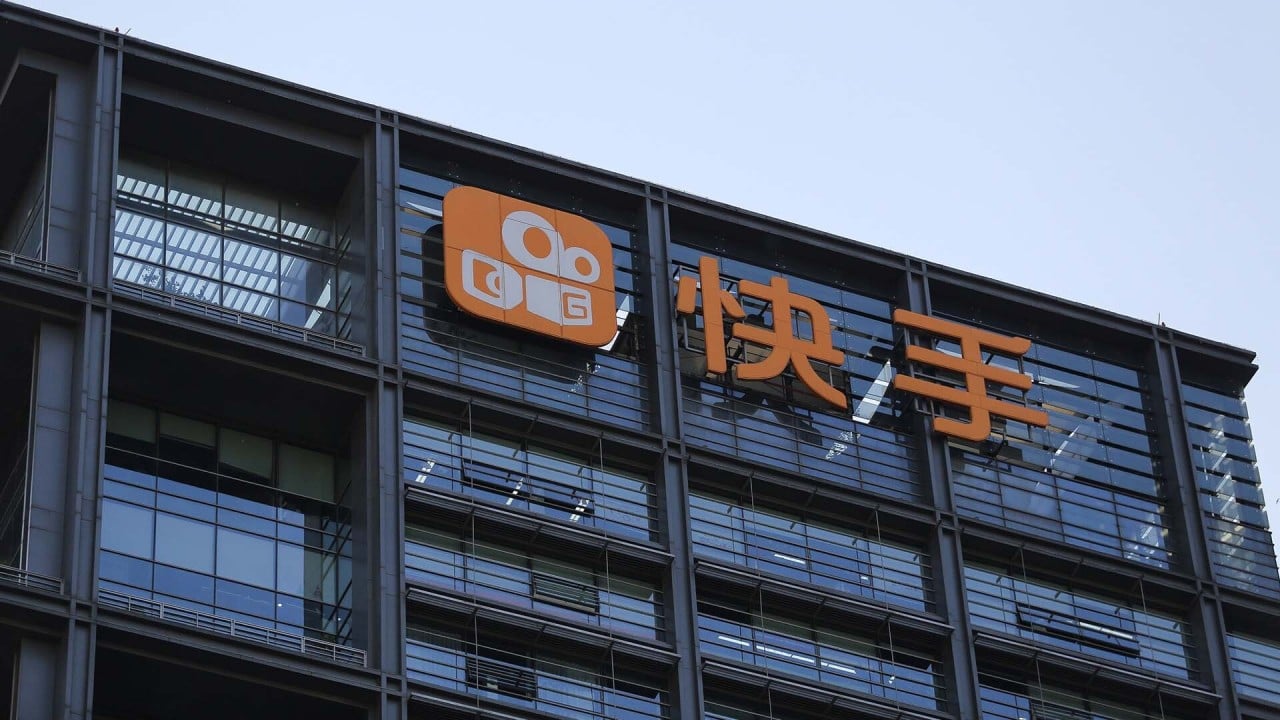
Explainer | Who Zhang Yiming is and how he grew ByteDance and TikTok into a global sensation
- Liang Rubo, long-time collaborator and co-founder of the company, will take over in a move that should enable Zhang to focus on long-term strategy
- The low-profile Zhang has had to face multiple challenges in recent times, including a stand-off with the US over ownership of TikTok
The 38-year-old billionaire, estimated by Forbes to have a net worth of US$35.6 billion and now the third Big Tech founder in China to have taken a step back in recent times after Alibaba Group Holding’s Jack Ma and Pinduoduo’s Colin Huang, appears at first blush to be just another ordinary Chinese engineer.
“The truth is, I lack some of the skills that make an ideal manager,” he said in a memo posted to the company’s website. “I’m more interested in analysing organisational and market principles, and leveraging these theories to further reduce management work, rather than actually managing people.”
Taking over will be Liang Rubo, long-time collaborator and co-founder of the company, in a move that should enable Zhang to focus on long-term strategy, corporate culture, and social responsibility, in his position as chairman of the company’s board of directors and largest individual shareholder with 25 per cent, according to a September Wall Street Journal report.

Zhang was raised in Longyan, a city in southwestern Fujian Province, which is known for Hakka culture, a Han Chinese subgroup. This obscure city has groomed two leading tech entrepreneurs: Zhang and Wang Xing, founder and CEO of on-demand delivery giant Meituan.
Zhang studied software engineering in the early 2000s at Nankai University in Tianjin. He often helped schoolmates to fix their computers, which was how he met his wife, said Zhang during an alumnus gathering in 2015.
Zhang’s pre-ByteDance career was mostly about start-ups. He joined Kuxun, an early search engine for tourists, and social networking platform Fanfou, which was created by Wang Xing.
ByteDance founder Zhang Yiming to step down as chief executive by end 2021
His last venture was the real estate search business 99fang.com, the first start-up he formed. The only big company he worked for was Microsoft, where he stayed just half a year. He said in 2014 that the work there was easy but inefficient.
Zhang, who has an obsession with information circulation, came up with the idea of making an app that can distribute information based on personal interests around the end of 2011, which later became news aggregator Jinri Toutiao. The same concept of AI-driven personalised content helped grow short video apps TikTok and Douyin into today’s empire.
In 2012, his information flow business started in a 4-bedroom apartment on Zhichun Road in northern Beijing, rented for 20,000 yuan a month. Dozens of ByteDance offices are still scattered around the area today.
By paying grey market vendors to pre-install the company’s apps, a common practice at the time, ByteDance was able to not only get more users, but also feed more data into their recommendation algorithm.
Using this method, they were able to acquire tens of millions of users, but their core user base was mostly people with cheap Android phones, skewing the content the apps recommended.
One of ByteDance’s earliest successes, Neihan Duanzi, went viral. The app, whose name translates roughly as “subtle jokes”, allowed its 17 million users to upload and read memes, funny videos, and off-colour jokes. However, it was banned in 2018 after the government said it contained “misleading and vulgar content”.
ByteDance founder Zhang Yiming tops China’s under 40 business leaders list
The company is known for its relatively flat corporate structure. “I am not called boss in the company, neither are other executives because we advocate the spirit of equality and sincerity. The idea of classes will restrict innovation”, Zhang once said in a show by Chinese media Yicai.
ByteDance staff members also call each other by their first name or simply “schoolmate” – a popular title among tech workers in China. And seven-digit employee IDs at the company were randomised, instead of being placed in ascending order based on seniority.
Rational, pragmatic and sincere were the top terms used to describe Zhang when the South China Morning Post talked to current and former ByteDance employees.

02:01
What is Kuaishou? Understanding China’s video-sharing app
“For me, he isn’t a remote boss, but rather an ordinary engineer. He is quite cute. He sometimes stutters, but it is better now. He is nice, approachable and sincere,” one of the employees said. Other common adjectives used to describe Zhang were energetic and ambitious.
Staff members can access Zhang’s schedule via productivity tool Feishu, and book appointments to see him, with sessions open from 9am until midnight.
However, another employee said that at ByteDance, people do not call the company a “big family”, adding that “maybe [the leadership] don’t want us to feel too much at home here”.
ByteDance CEO worries his employees are obsessed with Genshin Impact
As such, ByteDance falls into line with other large Chinese internet companies, which like to keep staff on their toes and the wheels rolling fast. Dubbed the “app factory”, the company can turn out a new app in three months, and adopts a big week/small week policy under which employees are asked to work an extra day every other week.
The 9-year-old start-up has now become the world’s first and only hectocorn, a privately held start-up valued at over US$100 billion. It has cultivated some super apps in the domestic market and overseas market – including news aggregator Jinri Toutiao, short video app Douyin and its overseas version TikTok, the first Chinese social media app to conquer the Western market.

01:33
How China’s TikTok video app became a global sensation
Domestically, tech giants have faced tighter antitrust regulation after Beijing named the sector as a key focus this year because of fast growth in the digital economy. Companies including Alibaba and Tencent Holdings, Baidu and Didi Chuxing have been fined over unreported mergers and acquisitions activity. Alibaba owns the South China Morning Post.
Nevertheless, the company has continued to expand aggressively into other digital sectors to diversify its revenue sources, including e-commerce, gaming and education, although people are still waiting for the next super app from ByteDance.
Zhang has rarely spoken to the media since 2016, a time during which his company has developed rapidly. He was not available to be interviewed for this article.
Meituan’s Wang Xing commented in 2017 at an event organised by financial advisory firm China Renaissance, that Zhang “understands what [the next trend] is earlier than most people, how big it is and the key point of it”.
“He has cultivated [much knowledge] even years before he started his company,” said Wang.


